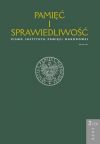Zasady i praktyka przejęcia majątku polskiego przez III Rzeszę, ze szczególnym uwzględnieniem sektora rolnego oraz mieszkaniowego, na przykładzie
Principles and Practice of Expropriation of Polish Property by the Third Reich, particularly of Residential and Agricultural Property, exemplified
Author(s): Mirosław SikoraSubject(s): History
Published by: Instytut Pamięci Narodowej
Summary/Abstract: The article presents the formal principles and practices concerning expropriation of Polish property by the German authorities in the territory annexed to the Third Reich in autumn 1939. The article focuses on the expropriation, confi scation, temporary management and sale of farms, as well as residential housing and building plots. The divisions of competency, between the German civilian central and regional administrative bodies, as well as the SS administration, are defined in an effort to determine responsibility for execution of particular expropriations in the annexed territories in the name of ‘strengthening Germanhood’. Polish territories incorporated into the province of Silesia are used as a case study. The author delineates the stages of expropriating Polish property – from registering and assessing value, to removal of Polish owners (private owners – Polish nationals, Jewish or ethnically Polish, or Polish state property) and management of expropriated farmsteads or home, thru its sale or lease to German citizens (Reichsdeutsch, Volksdeutsch, or resettled Germans) or its nationalization. Three persons, whose roles and responsibilities intertwined, were responsible for the management and redistribution of expropriated Polish (and Jewish) property: Reichsmarschall Hermann Göring, as the superior of the Chief Trust Office East (Haupttreuhandstelle Ost), Reichsführer SS Heinrich Himmler as the Reich Commissioner for the Strengthening of Germanhood (Reichskommissar für die Festigung des deutschen Volkstums), and the Reich Minister for Food and Agriculture (Reichsminister für Ernährung und Landwirtschaft) Richard Walter Darré (until 1942). The lack of clear-cut jurisdictions caused frictions between the offices, both at the ministerial and regional levels, and were not avoided in Upper Silesia. During the war Himmler consistently extended his influences over the control and redistribution of seized property, using his authority over issues of colonization of annexed territories.
Journal: Pamięć i Sprawiedliwość.
- Issue Year: 13/2008
- Issue No: 2
- Page Range: 43-82
- Page Count: 40
- Language: Polish

